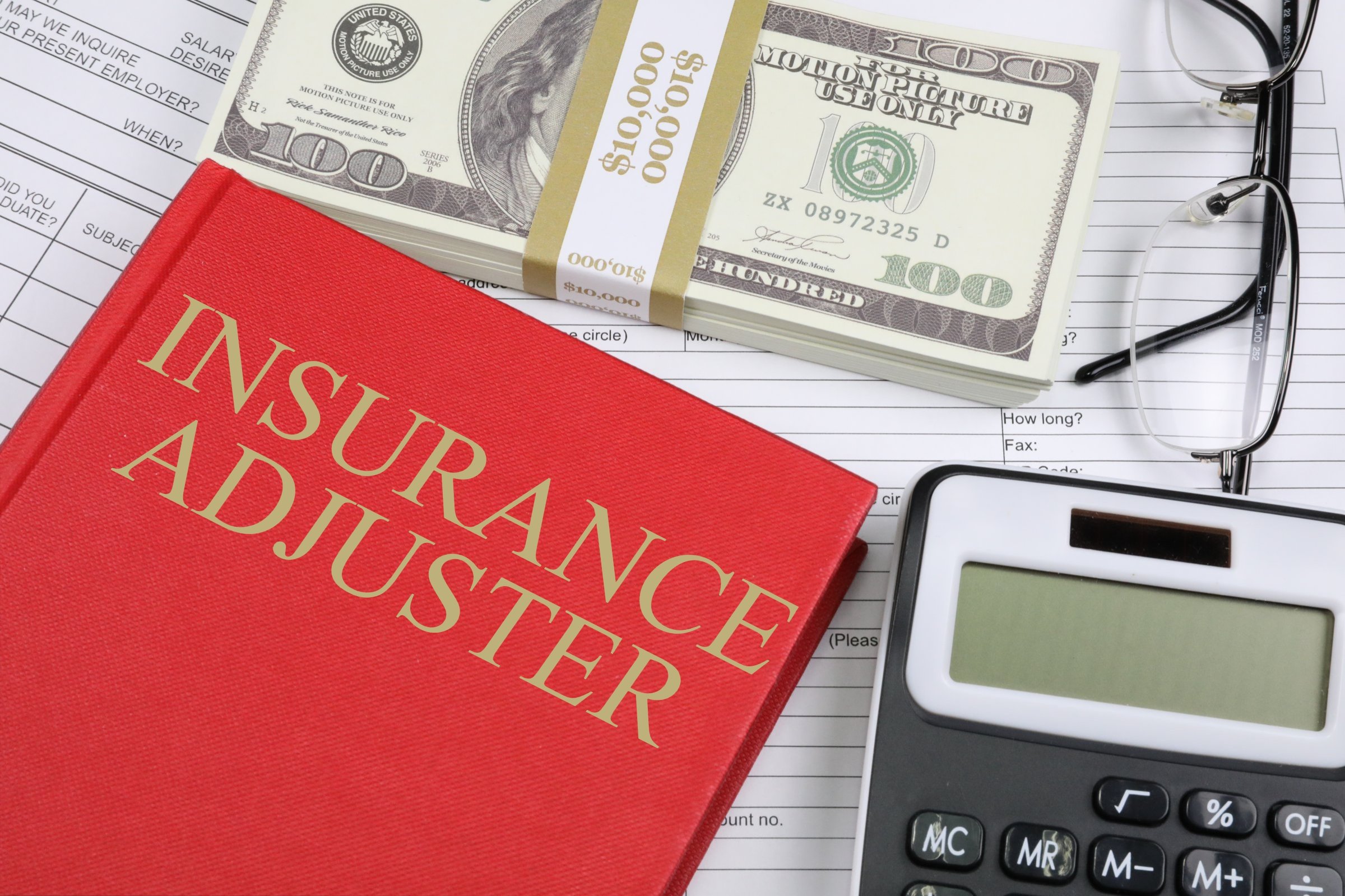Are you having difficulty getting an insurance adjuster to take your claim seriously? Has the process become dull and uninspiring? Have they been giving you a hard time about your situation? If so, then this blog post is for you! Here we will discuss practical ways how to scare insurance adjusters in order to prompt them into providing rightful compensation. We will review tried-and-tested techniques that have proven successful since the industry’s inception, as well as knowledge of negotiation strategies that can help give power back into the hands of claimants.
Contents [hide]
Understanding The Definition
What Is Insurance?
Before discovering how to scare insurance adjuster, insurance is a contract between two parties where one agrees to provide financial protection in the event of an unpredictable loss. This agreement typically involves the insured (the party seeking coverage) paying a premium or fee for such protection. The other party, known as the insurer, agrees to provide compensation for such losses and any associated costs.

What Is An Insurance Adjuster?
An insurance adjuster is a professional that works for an insurer. As part of their job, they are responsible for investigating and evaluating claims to determine how much compensation should be provided by the insurer to the insured party.
How To Scare Insurance Adjuster?
So how to scare insurance adjuster? There are many strategies you can employ to scare an insurance adjuster. Here are some of the most effective methods:
- Be persistent and never give up. Insurance adjusters may be used to claimants caving in quickly when faced with a difficult situation, but by remaining firm and refusing to accept any offers too quickly, you can absolutely unsettle them and make them think twice before making an offer.
- Have a confident attitude while negotiating with the adjuster. Adjusters expect claimants to appear timid or anxious when discussing their claim; being assertive will take them by surprise and certainly make them take more notice of your case.
- Do your research before approaching the adjuster – they’ll be impressed with your knowledge on the law and its applicable clauses.
- Use legal language when possible – it will make you sound more firm and professional, proving that you really mean business.
- Inform the adjuster that you have other avenues to pursue if a settlement can’t be reached. It doesn’t hurt to mention consulting an attorney or filing a lawsuit as potential courses of action; just make sure not to overdo this tactic, as it could backfire and make the insurer less likely to settle your claim amicably.
Why To Scare Insurance Adjuster?
You have already known how to scare insurance adjuster? Scaring insurance adjusters can be a powerful tool when negotiating a better settlement. While it may sound intimidating, the truth is that scaring an adjuster can actually give you more leverage in negotiations and help increase your chances of receiving fair compensation. Insurance adjusters are trained to expect claimants to be passive; by being assertive and confident in your dealings with them, you can make them take you seriously and give due consideration to your claim. With the right approach, scaring an insurance adjuster could be the key to getting the best outcome for your case.

How To Get A Fair Settlement From Insurance Adjusters?
Getting a fair settlement from an insurance adjuster can be challenging, but it is not impossible. Here are some tips for getting the best possible outcome:
- Properly document your claim – make sure that you have all of the necessary paperwork and evidence to support your claim.
- Learn the legal language associated with insurance policies as well as applicable laws in order to sound knowledgeable when discussing your case with an adjuster.
- Know what you’re entitled to – familiarize yourself with the maximum amount of compensation you may be eligible for so that if the initial offer doesn’t meet those standards, you can push back and negotiate higher amounts.
- Have patience – it could take time to reach a fair settlement, so try not to cave in too quickly.
- Remain firm and confident throughout the process – this will show insurance adjusters that you aren’t afraid of them or intimidated by their position.
When Will The Claims Adjuster Call?
It is important to understand the timeframe of when you can expect a claims adjuster to call. Generally, they will contact you within 24-48 hours from the time they receive your claim and will then continue to communicate with you throughout the process until a resolution has been reached. If it takes longer than that for them to respond, then feel free to follow up with them as needed.
What Are Pros And Cons Of Scarig Insurance Adjuster?
Pros
– Gives you leverage in negotiations
– Can help increase the chances of receiving fair compensation
– Shows adjusters that you are serious about your claim and not afraid to pursue it
Cons
– Adjusters may be less likely to settle amicably if they feel threatened or intimidated by your tactics
– Could backfire if done too aggressively or without proper justification
– Could lead to extra stress or anxiety if you are not comfortable with the tactic
Scaring insurance adjusters should be used only as a last resort when negotiations have reached an
What Are Tips For Scaring Insurance Adjusters?
- Remain firm and confident in all interactions with the adjuster – this will show them that you are serious about your claim and not afraid of them.
- Do your research before meeting with the adjuster to gain knowledge on the applicable laws and legal language that might be used.
- Be persistent and don’t give up even if they put up a fight; it helps to have an attitude of “no matter what happens, I will continue fighting for my rights”
- Utilize other tactics such as informing the adjuster that you have other avenues to pursue if a settlement can’t be reached, or hiring an attorney to help protect your interest in the case.
- Be patient – it could take time for the adjuster to come around and realize you are serious about your claim.
Following these tips can help ensure how to scare insurance adjuster effectively without going overboard, thus increasing your chances of getting a fair settlement from them.
What Are Tips For Talking To The Insurance Claims Adjuster?
- Be prepared for the conversation – know what you plan to say and be ready to explain the details of your claim in a clear and concise manner.
- Maintain a calm demeanor during all interactions with the adjuster; this will let them know that you are serious about getting a fair settlement.
- Have any relevant paperwork or evidence on hand to support your case, as well as records of past conversations and offers from the insurer.
- Do not provide any additional information beyond what is necessary; too many details can be overwhelming for an adjuster and could end up leading to more questions instead of resolutions.
- Make sure to listen carefully during the conversation and ask any relevant questions that might arise.

Conclusion: How To Scare Insurance Adjuster?
When dealing with an insurance adjuster, it is important to understand that you have the power in negotiations and can use fear tactics to get a better settlement. There are several strategies you can employ such as being persistent, confident, and knowledgeable; utilizing legal language when possible; and having patience throughout the process. Additionally, ensure that you have all of the relevant paperwork and documents on hand before meeting with them. Finally, remain calm during your interactions so as not to provide too much information or get overwhelmed in the process. In conclusion, understanding how to scare insurance adjuster could be a great way for you to achieve a fair settlement from them.
FAQs: Insurance
What not to say to insurance?
When speaking to an insurance adjuster, it’s important to be mindful of the phrases you use. Avoid saying, “I’m sorry,” as it may imply fault. Instead, focus on providing accurate information. Rather than admitting fault by saying, “It was all/partly my fault,” stick to the facts of the incident. Additionally, refrain from saying, “I did not see the other person/driver,” and instead provide a clear account of what happened. Choosing your words carefully can help ensure effective communication with the insurance adjuster.
What are the biggest threats to insurance industry?
Labor shortages pose a significant risk to the insurance industry. The challenge lies in the growing difficulty of finding qualified individuals with the necessary skills to fill vacant positions. Given that the insurance sector often demands specialized education and certification, this shortage becomes even more complex to address. It is crucial for the industry to tackle this issue proactively and find innovative solutions to ensure a sustainable workforce.
What happens if you don’t tell your insurance company?
Engaging in non-disclosure, whether through lying or evading your insurer’s inquiries, can have serious implications. By doing so, you jeopardize the possibility of having any future claims honored and risk the termination of your policy. It is crucial to be forthright and transparent with your insurer to maintain a trustworthy relationship and ensure the coverage you deserve.
Should you tell your insurance company?
It is important to promptly inform your insurer about the accident, even if you do not intend to file a claim. In the event of any injuries, kindly present your insurance certificate or cover note to the police.
What is unfair insurance?
Keyaways: An unfair claims practice occurs when an insurer attempts to delay, avoid, or diminish the amount of a claim owed to an insured party. Insurers engaging in such practices aim to cut costs or postpone payments to insured parties, often resorting to illegal means.
What is the weakness of insurance?
Insurance has certain drawbacks. It does not provide coverage for all types of losses that individuals or businesses may experience. Additionally, the process of receiving claims can be lengthy and involve legal procedures. Moreover, the cost of insurance can vary depending on the policy and other factors.
What are the 3 risks associated with insurance?
Insurance provide coverage for three main types of risk: personal risk, property risk, and liability risk. By protecting against these risks, individuals and businesses can safeguard themselves from potential financial hardships.
What are two problems insurance companies face?
Insurance companies face significant challenges that can impact their premiums, risk investigations, and payouts. These hurdles, often influenced by political conspiracies, include mismanagement, economic instability, lack of trust, and fierce competition. Overcoming these obstacles is crucial for insurers to thrive in a complex landscape.
What is an example of a non disclosure in insurance?
Providing misinformation regarding the purpose of the vehicle, whether it is intended for business or personal use, is problematic. Equally concerning is supplying inaccurate details about the make and model of the car. It is crucial to be transparent about any medical conditions, such as poor eyesight, that may affect driving abilities. Additionally, failing to disclose any previous collisions or accidents is a significant oversight.
Can an insurance company fail?
While rare, it is important to acknowledge the possibility of insurance company failures. In such instances, your state’s guaranty association comes to the rescue, safeguarding you from potential issues. Initially, the association strives to rehabilitate the insurer. However, if that proves unachievable, the company is forced into bankruptcy. Rest assured, this mechanism ensures the protection and well-being of policyholders in challenging circumstances.
Why must you be completely honest with your insurance company?
Engaging in deceitful practices to obtain insurance discounts is a form of fraud. Not only will you face penalties, but it also undermines the trust that the insurance company places in you as a policyholder. Ultimately, it is wise to heed the wisdom imparted by our mothers when we were young – honesty is truly the best policy.

Trayce served as a grassroots leader and activist in Texas as President of Dallas and Texas Eagle Forum.
Trayce is Mom Caucus Member, Texas Conservative Mamas, Texas Conservative Grassroots Coalition Leader, and Grassroots America Champion of Freedom Honoree.
She currently serves as the Eagle Forum National Issues Chair on Human Trafficking.
Trayce received a Bachelor’s Degree in Marketing from Texas A&M
Currently, she homeschools her youngest child age 13 and graduated her six oldest children, ages 31 to 19.







